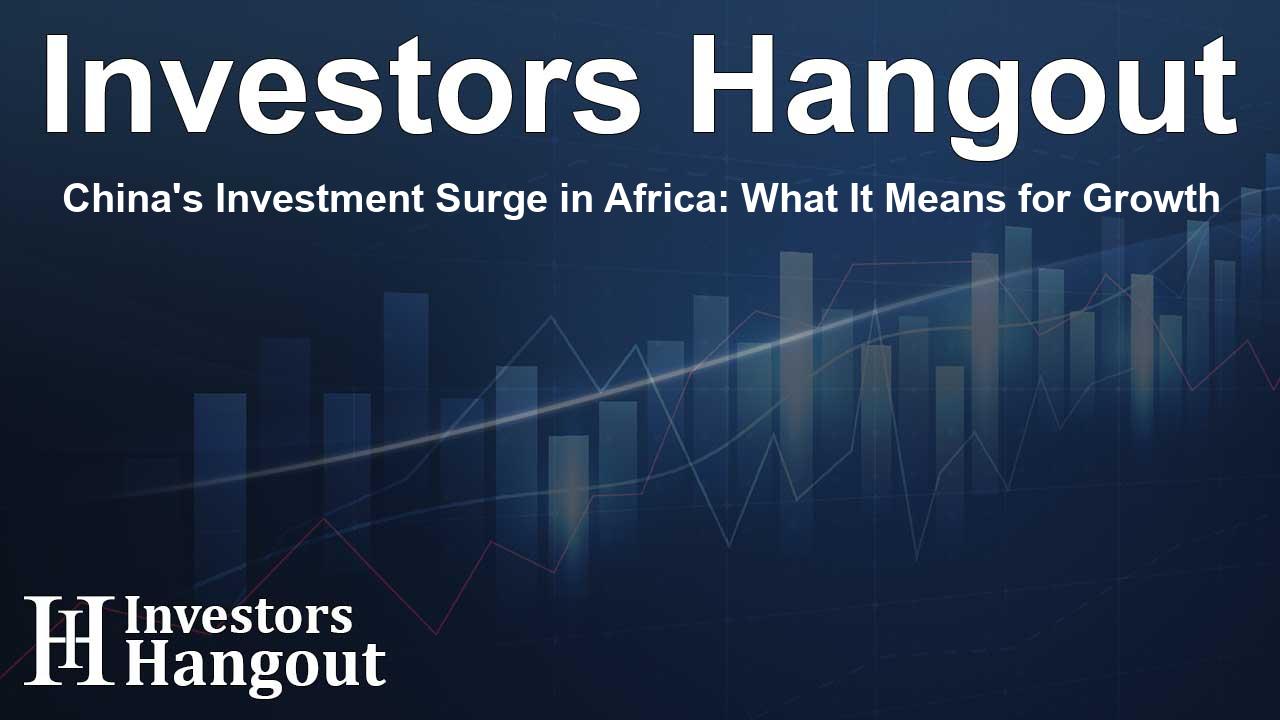China's Investment Surge in Africa: What It Means for Growth

China's Enhanced Financial Commitment to Africa
Recently, China has made a significant financial pledge to African countries, although it has not yet provided the debt relief that many of these nations have been seeking. This new commitment totals 360 billion yuan (approximately $50.7 billion) over the next three years, focusing on credit lines and investments designed to foster growth across the continent.
The Importance of FOCAC and the Belt and Road Initiative
Established in 2000, the Forum for China-Africa Cooperation (FOCAC) acts as a vital platform for strengthening investment and economic connections between China and Africa. Since the launch of President Xi Jinping's Belt and Road Initiative (BRI) in 2013, FOCAC has taken on even greater importance in promoting infrastructure development and trade links that echo the historic Silk Road.
Strategic Moves in Response to Global Competition
As competition from Western nations, Japan, and other global players intensifies, China is working to strengthen its foothold in Africa by ramping up its overseas investments. Analysts note that while China's overseas capital deployment is on the rise, it has not yet returned to pre-COVID levels. These developments reflect China's intention to enhance its regional influence, especially among African countries that depend heavily on foreign investment.
Navigating Domestic Pressures and International Commitments
This new funding round is particularly significant as it surpasses China's commitments made during the last FOCAC meeting in 2021. However, it still falls short of the funding promised in 2015 and 2018, the latter being the peak of Chinese lending to Africa under the BRI. Economic challenges within China and increasing debt issues in Africa require a more cautious approach to funding, with recent years showing a decline in support for infrastructure projects.
The Effects on African Infrastructure and Trade
The latest funding will be directed towards approximately 30 infrastructure projects aimed at boosting trade within the continent. This is crucial for addressing the estimated $100 billion annual funding gap in infrastructure, which is essential for establishing effective transport links and achieving a unified pan-African trade bloc.
Emphasis on Renewable Energy Initiatives
In addition to traditional infrastructure projects, China has pledged to initiate 30 clean energy projects in Africa. This shift towards sustainable initiatives highlights the growing importance of renewable energy sources. As a leading global player in clean energy, China is well-positioned to assist Africa in transitioning to greener energy solutions, which are vital for improving energy access and tackling climate change challenges on the continent.
Concerns and Future Outlook
While the intentions behind China's financial support are evident, there are concerns regarding the transparency of these investments. The structure of the debt agreements has raised questions, especially for countries that owe substantial amounts to China. Furthermore, during recent talks, China has encouraged other creditors to participate in the debt restructuring process, indicating a more comprehensive approach to addressing Africa's debt challenges.
Reactions from National Leaders
African leaders have expressed cautious optimism about the new financial commitments, emphasizing the importance of security and humanitarian needs. For example, Ethiopia and Mauritius have announced new currency swap agreements with China, while Kenya is in discussions to revitalize funding for major projects, such as modernizing its railway network.
The evolving relationship between China and Africa continues to develop amidst complex global financial dynamics. As both sides strive to strengthen this partnership, ongoing discussions and investments will significantly influence Africa's developmental path for years to come.
Frequently Asked Questions
What is FOCAC?
The Forum for China-Africa Cooperation (FOCAC) is an initiative created to enhance economic and investment partnerships between China and African nations.
How much has China pledged to invest in Africa recently?
China has announced a financial commitment of 360 billion yuan (around $50.7 billion) over three years for credit lines and investments.
What types of projects will the new funding support?
The funding will support infrastructure projects aimed at improving trade links and launching clean energy initiatives across Africa.
How does this impact Africa's energy landscape?
China's commitment to clean energy projects signifies a significant move towards renewable energy solutions, which will help address energy shortages in African nations.
Are there concerns regarding debt transparency?
Yes, there are ongoing concerns about the terms of debt agreements, particularly for countries with significant debt owed to China.
About The Author
Contact Evelyn Baker privately here. Or send an email with ATTN: Evelyn Baker as the subject to contact@investorshangout.com.
About Investors Hangout
Investors Hangout is a leading online stock forum for financial discussion and learning, offering a wide range of free tools and resources. It draws in traders of all levels, who exchange market knowledge, investigate trading tactics, and keep an eye on industry developments in real time. Featuring financial articles, stock message boards, quotes, charts, company profiles, and live news updates. Through cooperative learning and a wealth of informational resources, it helps users from novices creating their first portfolios to experts honing their techniques. Join Investors Hangout today: https://investorshangout.com/
The content of this article is based on factual, publicly available information and does not represent legal, financial, or investment advice. Investors Hangout does not offer financial advice, and the author is not a licensed financial advisor. Consult a qualified advisor before making any financial or investment decisions based on this article. This article should not be considered advice to purchase, sell, or hold any securities or other investments. If any of the material provided here is inaccurate, please contact us for corrections.
